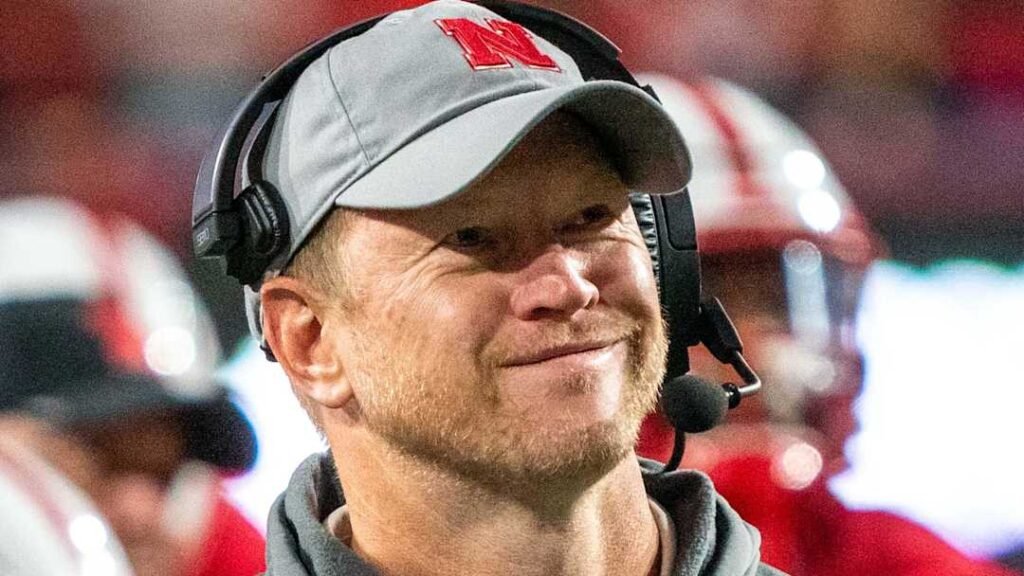It’s been years since Scott Frost last roamed the sidelines in Lincoln, yet the former Nebraska quarterback and ex-Cornhuskers head coach continues to treat his time there like an unresolved breakup. And just like the ex who insists they’re so over it, Frost has a curious way of proving the exact opposite—by constantly bringing it up.
In a recent interview with ESPN’s Andrea Adelson, Frost once again found himself tiptoeing through the ashes of his Nebraska tenure—though, as usual, he framed it as if he were just being introspective, reflective, even noble. But anyone paying close attention can see the pattern. Frost claims he won’t talk about Nebraska… then immediately starts talking about Nebraska.
It’s a bit like watching someone swear they’ve sworn off junk food, only to devour a bag of chips “just to show they don’t care about it.”
Frost’s Favorite Villain: Everyone But Himself
Let’s rewind. After leading UCF to a spectacular undefeated season in 2017—a feat that turned him into the hottest coaching commodity in the country—Frost made the emotional leap to return home to Nebraska. It was supposed to be the feel-good story of the decade. The prodigal son, returning to revive the legacy of a proud football powerhouse. Only, instead of restoring glory, Frost’s reign quickly spiraled into a cautionary tale.
The numbers tell part of the story: a dismal 16-31 record over four-plus seasons and the unceremonious end after an embarrassing loss to Georgia Southern in 2022. But in interviews since, Frost has painted a different picture. One where he’s less the flawed architect of a failed rebuild and more the misunderstood artist whose vision was never truly supported.
In his conversation with Adelson, Frost managed to drop several “I have no regrets” lines while clearly hinting at regrets. “I was so happy here,” he said of his time at UCF, practically glowing as he reminisced. Then came the twist: “I told myself I wasn’t going to leave unless it was for a place where you could legitimately win a national championship.”
That place, he believed, was Nebraska. And that’s when the storm began.
Mixed Messages and Mental Gymnastics
The interview veered into murky waters as Frost contradicted himself, again. While saying he didn’t regret leaving UCF, he then explained how difficult it was to leave and how perhaps, deep down, he knew it wasn’t the right move. He blamed “some other people” for pushing him to take the job. “I kind of knew that wasn’t best for me,” he admitted. “It was what some other people wanted me to do to some degree.”
Who these mystery influencers are remains unsaid, of course. It’s the classic Frost formula: imply, deflect, allude—without ever taking full ownership. He wraps his grievances in vague language, all while performing the emotional sleight of hand that makes him appear humble and misunderstood.
The Nebraska Hangover
Despite Frost’s efforts to present himself as someone at peace with the past, it’s evident he’s still carrying the weight of what happened in Lincoln. And it’s not hard to understand why. He walked into a program with sky-high expectations, a storied legacy, and a fanbase desperate for resurrection. But instead of ushering in a renaissance, he oversaw one of the darkest chapters in modern Cornhusker history.
His teams struggled with consistency, discipline, and—most baffling of all—basic game management. Week after week, it seemed like the Huskers found creative new ways to snatch defeat from the jaws of victory. Even loyal fans eventually had to face reality: the dream of Scott Frost as Nebraska’s savior had turned into a recurring nightmare.
Is History Repeating Itself?
Now back at UCF, Frost has a shot at redemption. But he’s also got a track record that suggests he might not have fully learned the lessons of his past. If he keeps circling back to Nebraska, keeps pointing fingers—subtly or otherwise—he risks dragging that baggage into his new chapter.
At some point, every coach has to draw a line in the sand and move forward. True accountability isn’t about soundbites or clever interview pivots; it’s about acknowledging missteps and growing from them.
Let’s hope that UCF doesn’t one day become the next tragic episode in the Scott Frost saga—one where the villain is once again the people around him, rather than the man in the mirror.

